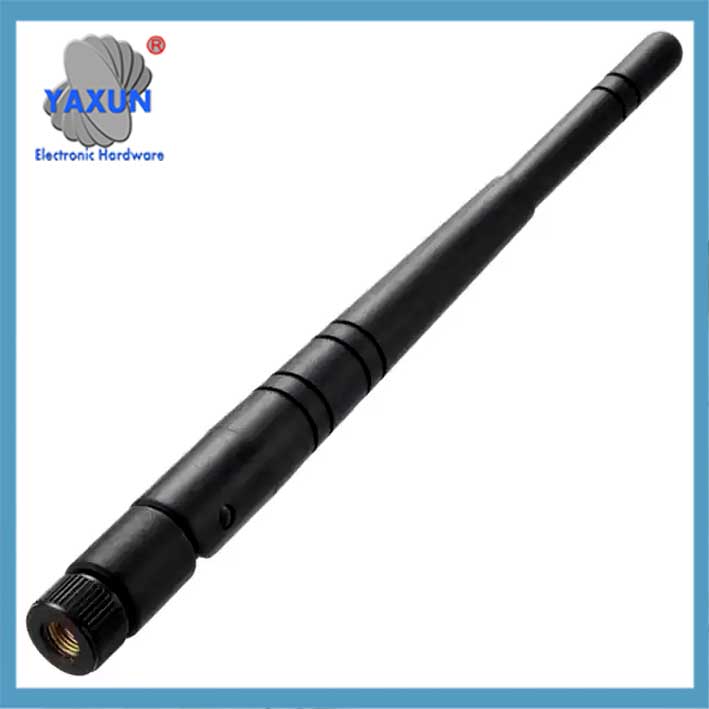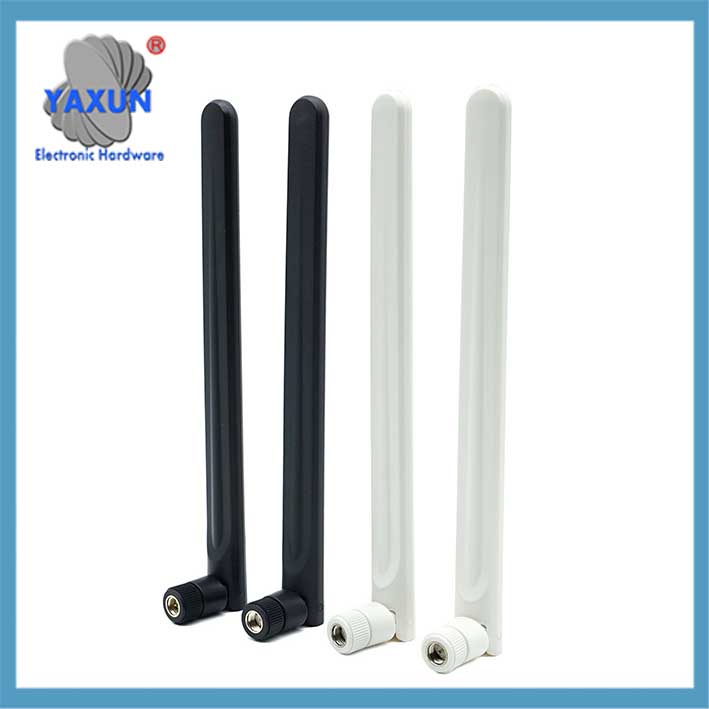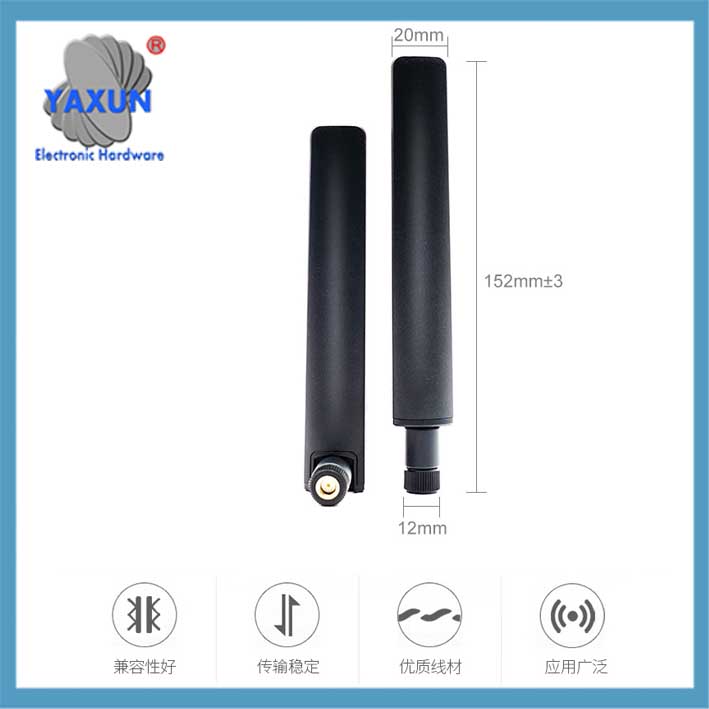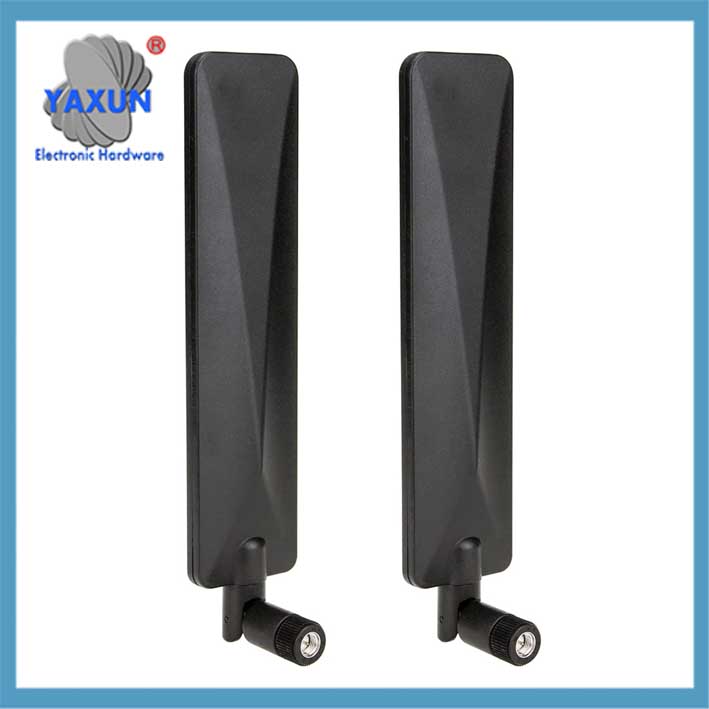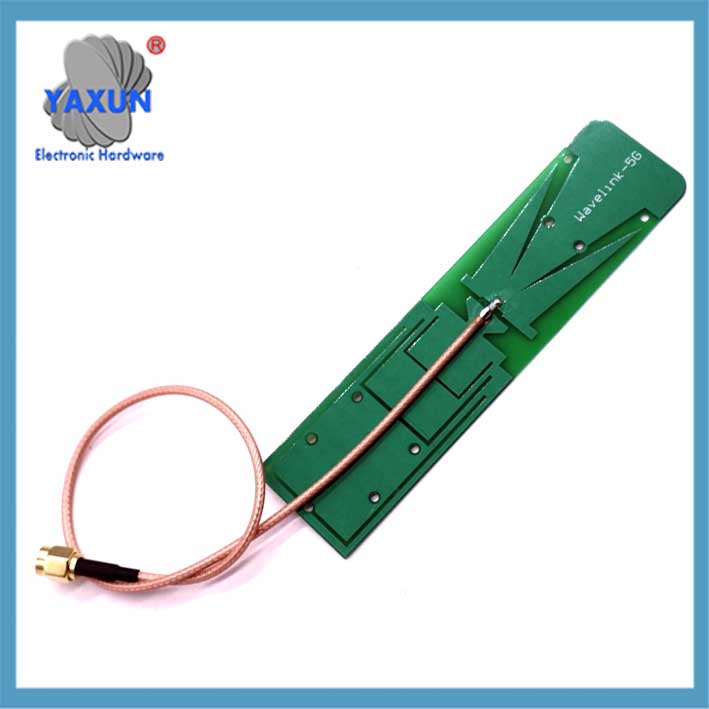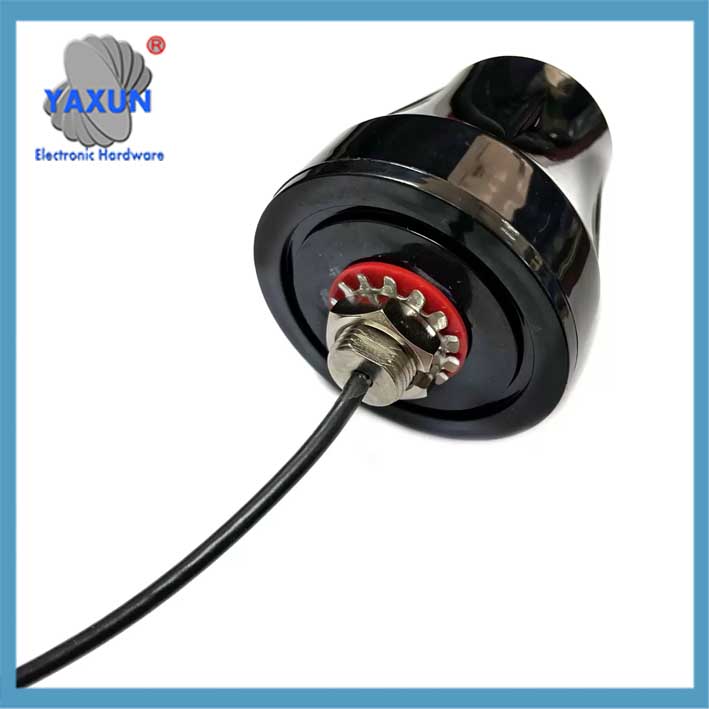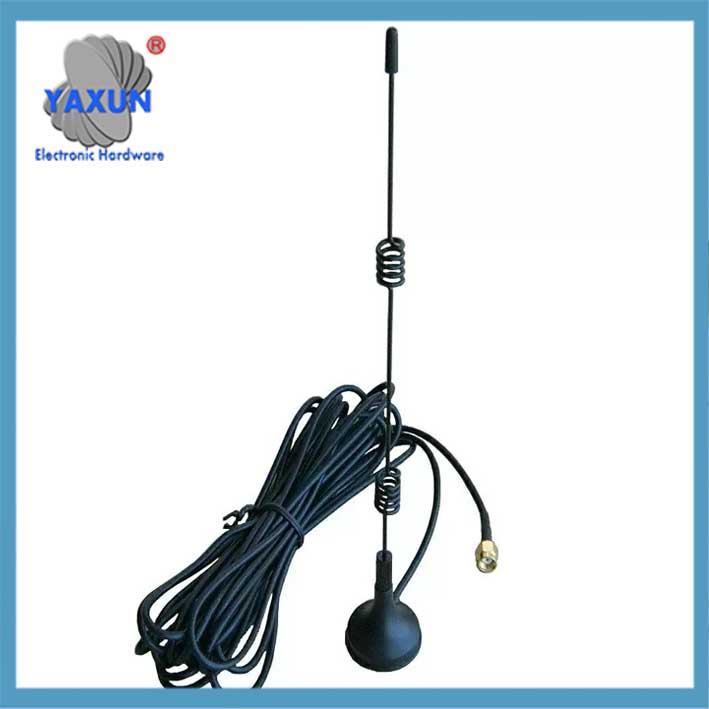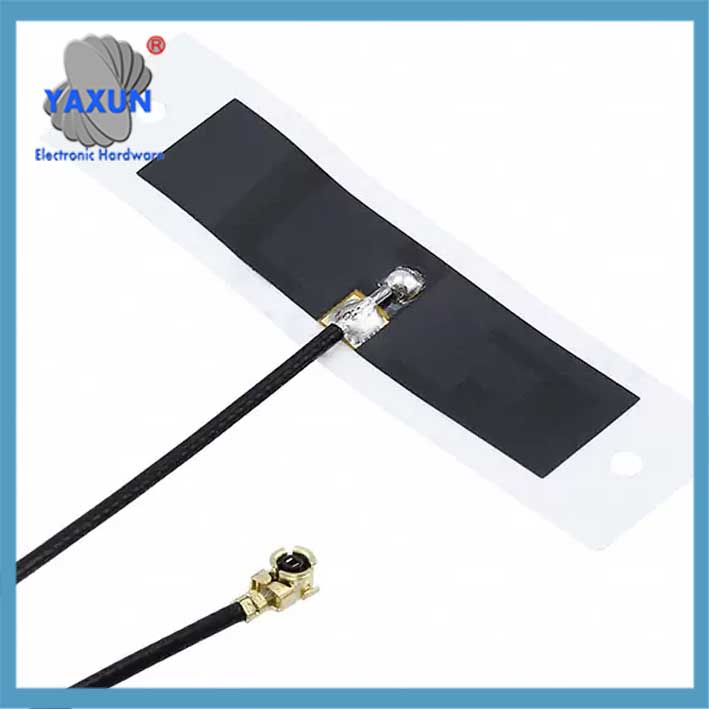קטגוריות מוצרים
- כבלי נעילת בורג USB 26
- מחברים וכבלים 18
- רתמת חיווט בהתאמה אישית 33
- רכזות 47
- ספקי מתגים אלקטרוניים 5
- כבלי זווית USB 27
- אנטנה סופנית 9
- כבלים רפואיים 37
- כבלי USB4 11
- כבלים סיכות פוגו 10
- כבלים אטומים למים 28
- סוג C כבלים ומתאם 41
- כבלי USB5 9
תגי מוצר
5G מובנה & יצרנית סין של אנטנת מוט
5טכנולוגיית G משתמשת באנטנות, גם מובנה וגם חיצוני, לשדר ולקבל אותות אלחוטיים. אנטנות מובנות משולבות במכשירים כמו סמארטפונים, בעוד שאנטנות חיצוניות כמו אנטנות מוט משמשות ליישומים שבהם יש צורך ברווח או כיסוי גבוהים יותר. אנטנות אלו פועלות על ידי פליטת וקליטה של גלים אלקטרומגנטיים בתוך פסי תדר ספציפיים של 5G.
Technical characteristics and industry applications of 5G built-in and rod-shaped antennas
אֲנִי. 5G built-in antennas
Design and integration optimization
Built-in antennas are mostly in the form of flexible printed circuits (FPC) or PCB boards, and use structures such as planar inverted F-type (PIFA) to achieve compact layout. לְדוּגמָה, Shenzhen Boges’ 5G built-in FPC antenna group adapts to the internal space limitations of the device through flexible materials, while supporting multi-band coverage.
In the design of Maya Communication’s 5G mobile phone antenna, the multi-frequency function is realized through the U-shaped slot structure, and the coaxial feeding technology is combined to reduce the return loss and enhance the signal matching ability.
 TS9 Antenna 5G 4G 7dBi High Gain with 10 Feet Cable Magnetic Base, External Antenna for Netgear LM1200 |
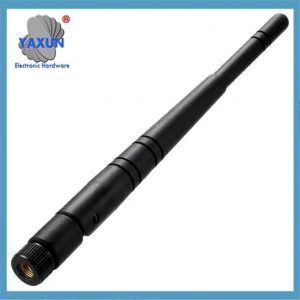 Bluetooth אנטנה RF, Wi-Fi, שׁוֹט, הטיה SMA מחבר זכר |
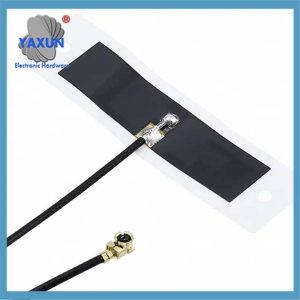 1461530050 2.4GHz, 5GHz Flat Patch Cord RF Antenna |
פוּנקצִיָה: Built-in antennas are designed to be compact and efficient, fitting within the confines of devices like smartphones. They typically use techniques like beamforming and MIMO to improve signal quality and range.
דוגמאות: Smartphones, טבליות, and other portable devices.
Considerations: Antenna design in small devices requires careful consideration of placement, ground plane, and other factors to ensure optimal performance across different frequency bands and technologies.
Performance Improvement
Shanghai Shengdana’s full-band high-gain 5G antenna achieves full-band coverage and efficiency improvement by symmetrically arranging the mid- and low-frequency band boards and the high-frequency body, while reducing the cost of the reflector.
The size of the built-in antenna of modern smartphones has been significantly reduced with the high-frequency band (GHz) טֶכנוֹלוֹגִיָה, but it still needs to ensure the efficiency of signal transmission and reception through impedance matching and electromagnetic field optimization.
Application Scenario
Mainly used in smartphones, IoT terminals and miniaturized communication devices, such as the 5G-MIMO antenna solution provided by Shenzhen Boges is suitable for smart wearables and industrial sensors.
III. 5G אנטנת מוט
Structure and Material Properties
Rod antennas are mostly external, made of copper tube or fiberglass, and use a quarter-wavelength oscillator design to optimize signal radiation efficiency57. לְדוּגמָה, Zhongjing Communication’s 5G rubber rod antenna covers the 800-5000MHz frequency band, with a gain of 5dB, suitable for outdoor environments.
Renfeng Electronics’ suction cup antenna combines a waterproof design to support 5G high-frequency band signal transmission and is often used in vehicle or ship communication scenarios.
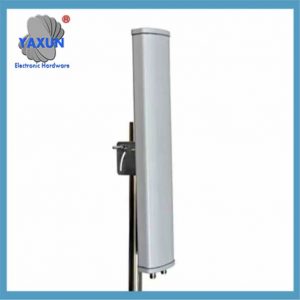 3300-3800MHz 5g panel antenna with 14dBi gain |
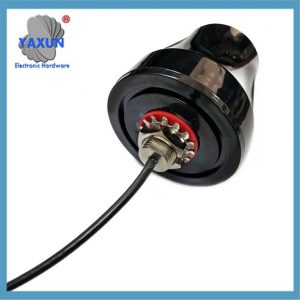 5G Antenna 698-3800MHz Full Band -150dBc Indoor Omnidirectional Ceiling Antenna |
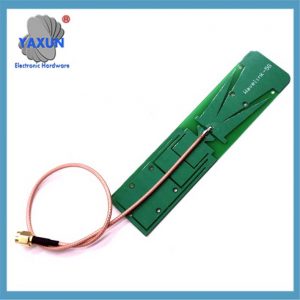 129-33mm 5G built-in PCB high gain antenna |
Rod Antennas (and External Antennas):
פוּנקצִיָה:
Rod antennas, also known as pole antennas, are external antennas that can be attached to devices or installed separately. They are often designed to have a higher gain than built-in antennas, allowing them to capture and transmit signals more effectively.
דוגמאות:
Omnidirectional antennas (like those from Cisco) and directional antennas.
Benefits:
Improved signal strength, extended range, and enhanced connectivity in areas with poor 5G coverage.
Low cost and easy deployment
The manufacturing process of rod antennas is mature. יצרנים (such as Zhongjing Communication) have achieved a unit price as low as 2.66 yuan through large-scale production, and are compatible with a variety of interfaces (כמו SMA).
Users can make their own antennas based on the wavelength formula (300/frequency ÷ 4×0.96), such as using air conditioning copper tubes to make high-power rod antennas to improve signal strength.
Typical Applications
Widely used in routers, base station extension equipment and vehicle communication systems, supporting high-gain demand scenarios (such as long-distance signal transmission).
Used in various applications, including public safety vehicles, fleet vehicles, and IoT applications where space is limited.
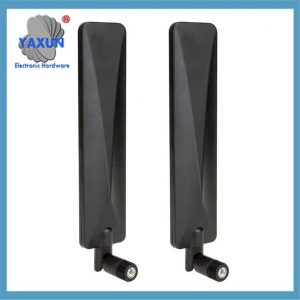 196mm SMA connector paddle 5G glue stick antenna |
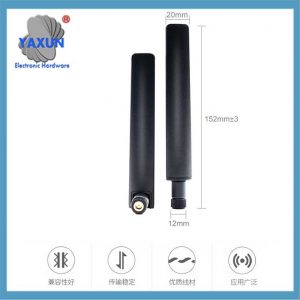 High-Gain Directional 4×4 MIMO Panel Antenna |
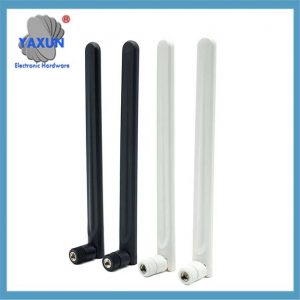 אנטנה מחזורית פסיבית של All-in-One עבור כל רצועות 5G 4G LTE |
III. Technical Comparison and Selection Recommendations
| תכונות | Built-in antenna | Rod antenna |
| Space occupancy | Miniaturization, suitable for compact devices | External installation, independent space required |
| Frequency band coverage | Full-band optimization (including medium and low frequencies)) | High frequency band (such as 5G millimeter wave) enhancement |
| עֲלוּת | Medium and high frequencies (customized design required) | Low (standardized mass production) |
| Applicable scenarios | Consumer electronics, IoT terminals | Industrial equipment, vehicle/ship communication |
Full-band optimization (including medium and low frequencies)
Cost
Selection Recommendations: If the device needs to be miniaturized and support multiple frequency bands, internal antennas are preferred; if signal gain and deployment flexibility are emphasized, rod antennas are more advantageous.
Considerations:
Rod antennas may require a direct coaxial wired connection to a modem or router for proper function.
לסיכום: 5G antennas, גם מובנה וגם חיצוני, play a crucial role in enabling high-speed, low-latency connectivity. Built-in antennas are designed for compactness, while external antennas offer higher gain and improved coverage in specific situations.
צרו קשר
מחכה לדוא"ל שלך, אנו נשיב לך בפנים 12 שעות עם מידע חשוב שהיית צריך.
 English
English العربية
العربية bosanski jezik
bosanski jezik Български
Български Català
Català 粤语
粤语 中文(漢字)
中文(漢字) Hrvatski
Hrvatski Čeština
Čeština Dansk
Dansk Nederlands
Nederlands Eesti keel
Eesti keel Suomi
Suomi Français
Français Deutsch
Deutsch Ελληνικά
Ελληνικά עברית
עברית Magyar
Magyar Italiano
Italiano 日本語
日本語 한국어
한국어 Latviešu valoda
Latviešu valoda Bahasa Melayu
Bahasa Melayu Norsk
Norsk پارسی
پارسی Polski
Polski Português
Português Română
Română Русский
Русский Cрпски језик
Cрпски језик Slovenčina
Slovenčina Slovenščina
Slovenščina Español
Español Svenska
Svenska தமிழ்
தமிழ் ภาษาไทย
ภาษาไทย Tiếng Việt
Tiếng Việt
